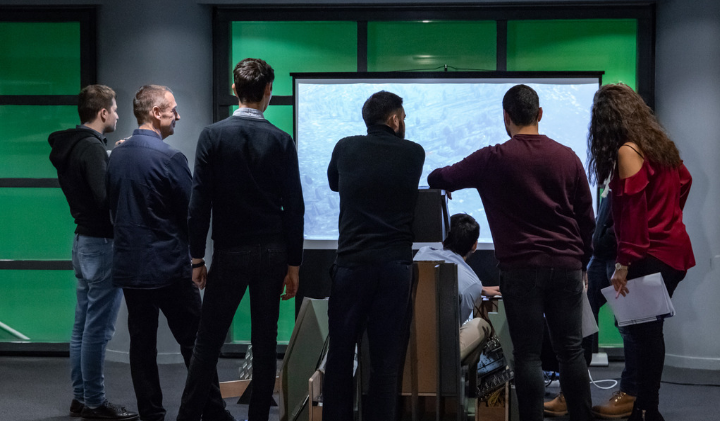What’s the first thing that comes to mind when the words “Internet of Things” pop up? It’s probably “e-commerce”, “smart phones”, “smart homes”, “big data”, “cloud”, etc… but there’s more to it than meets the eyes; and IoT has been transforming all forms of interaction and work process, one industry at a time.
Connected devices are everywhere and valuable data is being transmitted from one source to multiple ones at an incredible pace. With all fields of study affected, one stands out: manufacturing. So what does this mean for engineers and developers?
New Jobs
As much as people want to argue that IoT and big data are allowing technology to replace people in the workplace because of the smart technologies involved in processing and analyzing data, no one can deny that it is creating a lot of job openings and needs that did not exist a decade ago. Other than being software engineers, network engineers, and UX engineers; both passionate developers and engineers now have a broader and diverse spectrum to choose from and specialize in. To name a few:
- Industrial Data Scientist: Dubbed as “the sexiest job of the 21st century” by The Harvard Business Review, data scientists are a strongly expanding their job profiles in tech and e-commerce companies where the knowledge in both statistical programming languages as well as general-purpose programming languages has become more and more required.
- Industrial Computer Programmer: The IT solution that is designed by the IT solution architect is brought to life by the industrial computer engineer. An increase shift to cloud architectures has been taking place, and new programming challenges are arising especially with new protocols being developed every day.
IoT and Smart Manufacturing
As consumers’ shopping behavior became more tech oriented and transactions are made online, more manufacturers got used to working with an accumulation of orders to accommodate the needed time to secure and assemble materials and manufacture products.
Now, IoT makes it possible to manage smaller orders without having any counter effects on production time, costs or even shipping.
“The IoT in manufacturing market size is projected to grow from USD 12.67 billion in 2017 to USD 45.30 billion by 2022, at a compound annual growth rate (CAGR) of 29.0% during the forecast period of 2017–2022.” (Market Research.com)
To further simplify the concept, it’s more about exploring flexible manufacturing solutions that quickly adapt to the needs of tech and e-commerce company, without excluding the industries of healthcare and agriculture who are also witnessing a co-dependency with smart manufacturing when it comes to creating their devices. A great example in agriculture would be:
- Smart farming: that will help lower production risks, increase efficiency, and assist in overall cost control.
- Monitoring climate conditions: with sensors located across fields that collect various data from the environment and send it to the main cloud.
- Greenhouse automation: with the support of technologies such as smart sprinklers for irrigation and sensors.
After this big transition from traditionally known engineering to IT-related work; everyone must remember that exploring these new jobs and the latest IoT updates will require an insane amount of high-level education and qualifications.
Specialized Master’s program
For an engineer to be ready to handle big data and make the best out of IoT and all its components, a strong academic background in this specialty is a must. This goes without saying that IoT also impacted engineering on an academic level, with major schools offering upgraded syllabi that will support the evolution of the future engineer who will be trained to information systems and architecture of databases.
A great program that combines digital innovation and industrial issues such as big data, IoT, and security will be an asset to any engineer looking for a job in a lot of sectors of activity like start-ups, software publishing, digital services companies, SMEs, energy, transport, and many more.
Discover ESILV’s master program in Computer Science, Big Data and Connected Objects.
This post was last modified on 21 May 2019 2:24 pm






